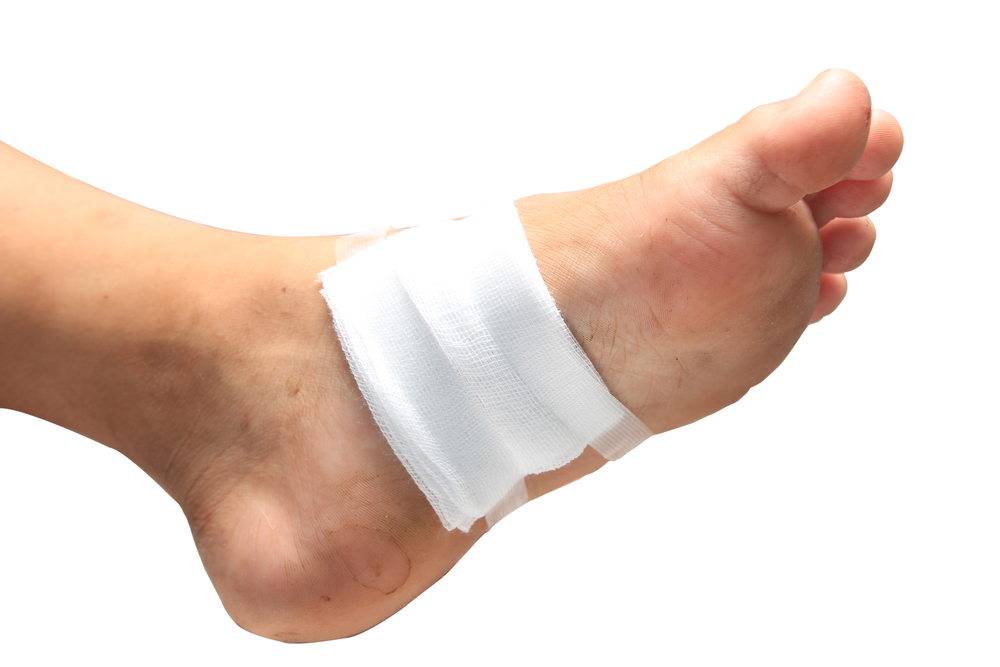Freehold (732) 294-9393
Freehold (732) 294-9393
 If you step on something that pierces the skin on the foot, it may be treated by applying a bandage or by using skin glue. An X-ray is often performed if the object is embedded in the sole of the foot, and surgery may be required to remove it. The wound will generally heal faster when it is kept clean and dry. After thoroughly washing the hands, the bandage should be removed, and the affected area washed with antibacterial soap and warm water. Many patients will notice if the wound is not healing properly. This can include redness and swelling, the edges of the wound may reopen, and it may be difficult to move the foot. If you would like additional information about how to care for a wound on the foot, it is suggested that you speak to a podiatrist.
If you step on something that pierces the skin on the foot, it may be treated by applying a bandage or by using skin glue. An X-ray is often performed if the object is embedded in the sole of the foot, and surgery may be required to remove it. The wound will generally heal faster when it is kept clean and dry. After thoroughly washing the hands, the bandage should be removed, and the affected area washed with antibacterial soap and warm water. Many patients will notice if the wound is not healing properly. This can include redness and swelling, the edges of the wound may reopen, and it may be difficult to move the foot. If you would like additional information about how to care for a wound on the foot, it is suggested that you speak to a podiatrist.
Wound care is an important part in dealing with diabetes. If you have diabetes and a foot wound or would like more information about wound care for diabetics, consult with Dr. Henry Miller from New Jersey. Our doctor will assess your condition and provide you with quality foot and ankle treatment.
What Is Wound Care?
Wound care is the practice of taking proper care of a wound. This can range from the smallest to the largest of wounds. While everyone can benefit from proper wound care, it is much more important for diabetics. Diabetics often suffer from poor blood circulation which causes wounds to heal much slower than they would in a non-diabetic.
What Is the Importance of Wound Care?
While it may not seem apparent with small ulcers on the foot, for diabetics, any size ulcer can become infected. Diabetics often also suffer from neuropathy, or nerve loss. This means they might not even feel when they have an ulcer on their foot. If the wound becomes severely infected, amputation may be necessary. Therefore, it is of the upmost importance to properly care for any and all foot wounds.
How to Care for Wounds
The best way to care for foot wounds is to prevent them. For diabetics, this means daily inspections of the feet for any signs of abnormalities or ulcers. It is also recommended to see a podiatrist several times a year for a foot inspection. If you do have an ulcer, run the wound under water to clear dirt from the wound; then apply antibiotic ointment to the wound and cover with a bandage. Bandages should be changed daily and keeping pressure off the wound is smart. It is advised to see a podiatrist, who can keep an eye on it.
If you have any questions, please feel free to contact our office located in Freehold, NJ . We offer the newest diagnostic and treatment technologies for all your foot care needs.